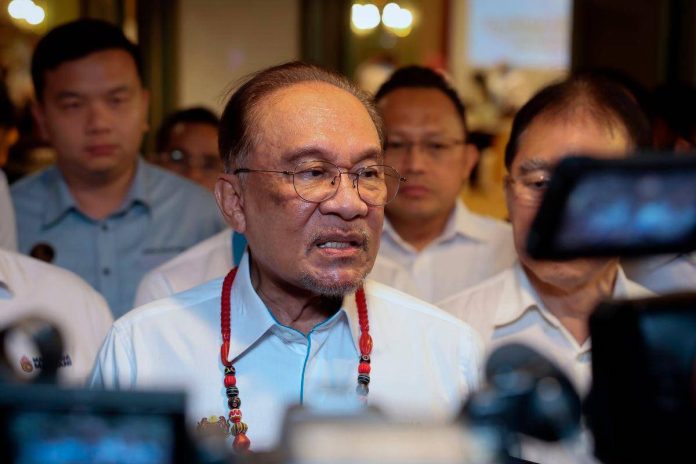PETALING JAYA: Prime Minister Datuk Seri Anwar Ibrahim’s order to freeze ministers’ overseas travel has been described as both a show of political discipline and an urgent administrative step ahead of Budget 2026 and the Asean Summit in October.
Analysts said the directive sends a clear message that the Cabinet must prioritise domestic governance at a critical juncture for Anwar’s administration although some see it as a sign of political caution.
Singapore Institute of International Affairs senior fellow Dr Oh Ei Sun said the move could pre-empt disunity within government ranks.
“It is likely also to prevent ministers from plotting unfriendly political manoeuvres overseas, similar to what some of their predecessors did ahead of the 2020 Sheraton Move,” he said, referring to the defections that toppled the Pakatan Harapan government.
He, however, said such risks were an inevitable part of Malaysia’s political landscape.
“The nature of parliamentary democracy is such that plots and defections are always possible. This is like playing musical chairs – you need to be on constant alert to plug the various holes.”
Beyond politics, he suggested the freeze was also aimed at ensuring ministers strengthen their command of their portfolios and embed Anwar’s Madani principles in policy-making rather than leaving the work entirely to bureaucrats.
Still, he noted that ministries such as International Trade and Industry, Tourism and Foreign would likely be exempted from the freeze.
International Islamic University Malaysia political analyst Prof Syaza Shukri said the directive underlined Anwar’s intent to keep his Cabinet focused on pressing national matters.
“I think Anwar is trying to show that his Cabinet is serious when it comes to Budget 2026 because there are many things at stake, foremost of course is the survivability of his coalition going into GE16.”
She stressed that subsidy rationalisation, economic reforms and cost-of-living measures would require extensive coordination across ministries.
“Since the freeze is only for a month and senior officials can still travel, the impact on governance should be limited.”
Universiti Malaya analyst Dr Tawfik Yaakub said the freeze reflected a “new work style” and should be seen as part of Anwar’s broader strategy to consolidate political stability.
“It is a timely move to rally both government and citizens towards reviving the economy, stabilising politics and restoring confidence in the administration,” he said, adding that the Cabinet should be viewed as a ‘wartime Cabinet’ facing severe domestic and global pressures.
Tawfik said tighter political control could help Malaysia avoid being drawn into unfavourable blocs, while also saving costs that could be redirected to domestic monitoring of policies and projects.
UKM political analyst Dr Kartini Aboo Talib said the decision was a signal of Anwar’s intent to reinforce Cabinet discipline at a time when the political climate remains fluid.
“This reflects the prime minister’s intention to ensure his ministers’ direct involvement in policy planning and their physical presence in budget committees and technical meetings. Unnecessary overseas travel could disrupt this momentum.”
She added that ministries dependent on international engagement would need to rely more on hybrid tools such as digital diplomacy and permanent representatives abroad, although Malaysia’s visibility in global forums could dip in the short term.
On Wednesday, it was announced that Anwar had ordered ministers to be grounded with immediate effect, except for urgent matters approved by his office. He said the freeze was necessary to ensure the Cabinet remained focused on national priorities.








